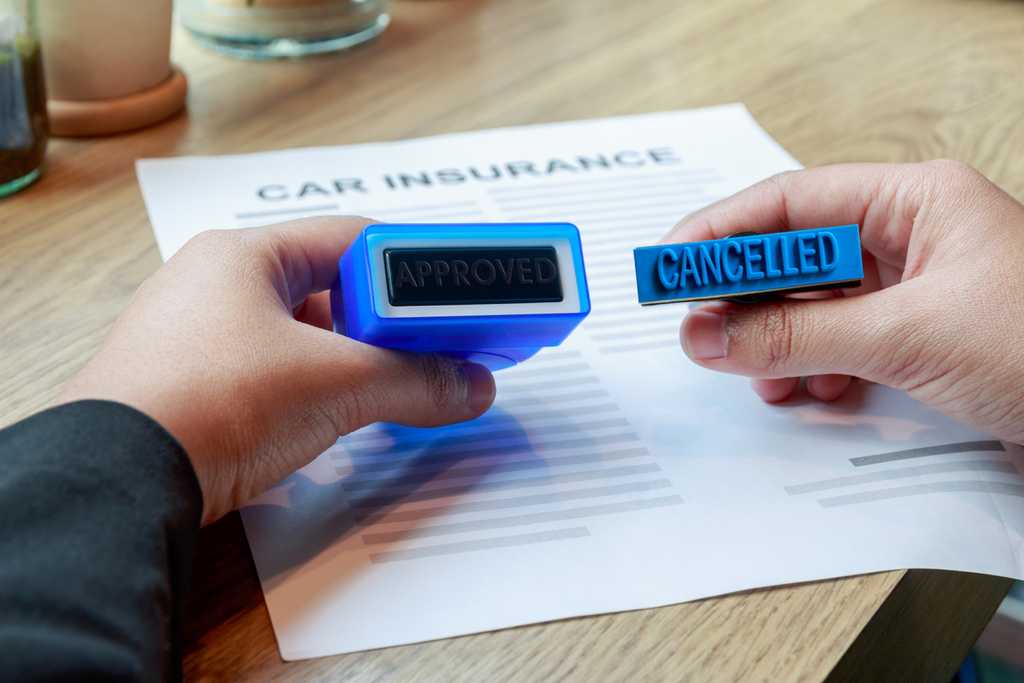Canceling a car insurance policy is a relatively simple process. It typically involves contacting your current insurance company or agent, requesting the cancellation, and signing a hardcopy or electronic form (which the insurer will provide) to confirm your request. The exact steps vary by insurance company, so be sure to ask what yours requires.
When Can You Cancel Your Car Insurance Policy?
You can cancel your car insurance policy at any time during its term. There are many reasons why you may want to do so. Maybe you've found another insurance company that will save you money. Maybe you’re moving to another state and are buying insurance there. Or perhaps, with gasoline costs rising rapidly, you’ve decided to sell your car and stop driving altogether.
Because you pay for your car insurance up front, you may receive a refund when you cancel. For example, let's say you pay $600 in premium for 12 months of coverage. After six months, you cancel the policy. The insurance company will owe you a refund for the remaining six months. That works out to $300, though they may deduct a small fee for the cancellation.
Four Steps to Cancel Your Car Insurance Policy
While the exact process for canceling varies by insurance company, it’s usually pretty simple.
1. Contact Your Car Insurance Company or Insurance Agent
You should be able to find the company’s customer service number on your insurance ID card, policy paperwork, or website. If you have a local insurance agent, you can call or visit their office.
Once you reach an insurance company representative, state that you need to cancel the policy and ask what the company requires you to do. You should also ask about any fees you’ll be charged — insurers sometimes charge a fee if you cancel a policy before the end of its term. Factor any fee into your cancellation decision.
2. Receive, Sign, and Send the Cancellation Form
In most cases, the insurance company will require you to sign a form that confirms your desire to cancel the policy and the date when you want the policy canceled. This form may be mailed to you or accessible online. The company may also use a fully electronic form that you e-sign. However the form is delivered to you, be sure to sign and return it as soon as possible.
3. Receive Notification of Your Policy Cancellation
Once the insurance company receives and processes your signed form, it will send you a letter that confirms your cancellation. Keep this with your insurance paperwork.
4. Look for Any Refund Owed to You
The insurance company may apply the refund to your credit card (if you used one to pay your premium) or send you a check for the amount.
3 Things to Remember As You Cancel Car Insurance
Throughout this process, keep some important things in mind.
Don’t Just Stop Paying
If you make installment payments, you might think that you can just stop paying to have your policy canceled. There are a couple of reasons not to do this.
First, because your insurer doesn’t know you really want to cancel, they’ll treat you like any other policyholder who’s missed a payment. Once the payment is late, the company will start a grace period — usually 10 to 20 days — in which your policy remains in force before they cancel it for non-payment of premium. They’ll expect you to eventually pay for the coverage provided during this period. Insurance companies have long memories. So if you ever try to buy a policy from them in the future, they may charge you for those days of coverage.
Second, once the insurance company finally cancels the policy for non-payment, they may report you to the state as uninsured. This could cause some issues with your driver registration which you’d need to clear up.
Ensure There's No Gap Between Old and New Policies
Are you canceling because you’re switching car insurance companies? Pay close attention to the date and time the old policy is set to cancel, and make sure you have new coverage on or before that moment.
Let’s say your old policy is set to cancel on June 30 at 12:01 a.m. (insurers specify to the exact minute). You should make sure your new policy is already in force, or is set to go into force simultaneously. If you leave a gap between policies and drive during that time, you’d be without insurance. This puts you at legal and financial risk.
Your New Insurance Company or Agent Can Help
If you don’t have a lot of spare time to deal with canceling your policy (or are a little sheepish about calling to cancel), your new insurance company or agent may be able to help. Ask if they can handle the initial request and help you with the paperwork.
Bad Reasons to Cancel Your Car Insurance
While there are many good reasons to cancel car insurance, there are also some important reasons why you shouldn’t.
You’re Driving Less (But Still Driving)
If you’ve cut back on the amount you drive, it might be tempting to cancel your insurance. But as nearly every state has minimum car insurance requirements, you’ll violate the law every time you hit the road.
Contact your insurance company to see if they offer any discounts or programs (such as usage-based or pay-per-mile insurance) for those who drive minimally. You might be able to pay an amount that’s more aligned with the amount you drive.
Insurance costs too much
Inflation has many Americans looking for ways to cut back on expenses. But while insurance may be a significant part of your budget, it’s not something you want to cancel. You need your policy for financial and legal protection while you’re on the road.
The good news is that there are many ways to save on car insurance.
You’ve Put Your Car in Storage
If you place your vehicle in storage — perhaps you store a car you don’t drive in winter, or you’re being deployed as part of your military service — you’ll want to keep your coverage. Even while stored, your car could be damaged or stolen. Contact your insurance company or agent to see what options they offer. Some are willing to change your policy to only comprehensive coverage for these situations.
Switching Car Insurance May Save You Money
While many people never switch car insurance companies, others do it quite frequently. Experts recommend shopping for your car insurance every year or two to see if you can save. Fact is, annual premiums can vary by hundreds of dollars between insurance companies.
Now that you know how easy it is to cancel your current policy, you might consider checking with a few companies to see if you can save.

